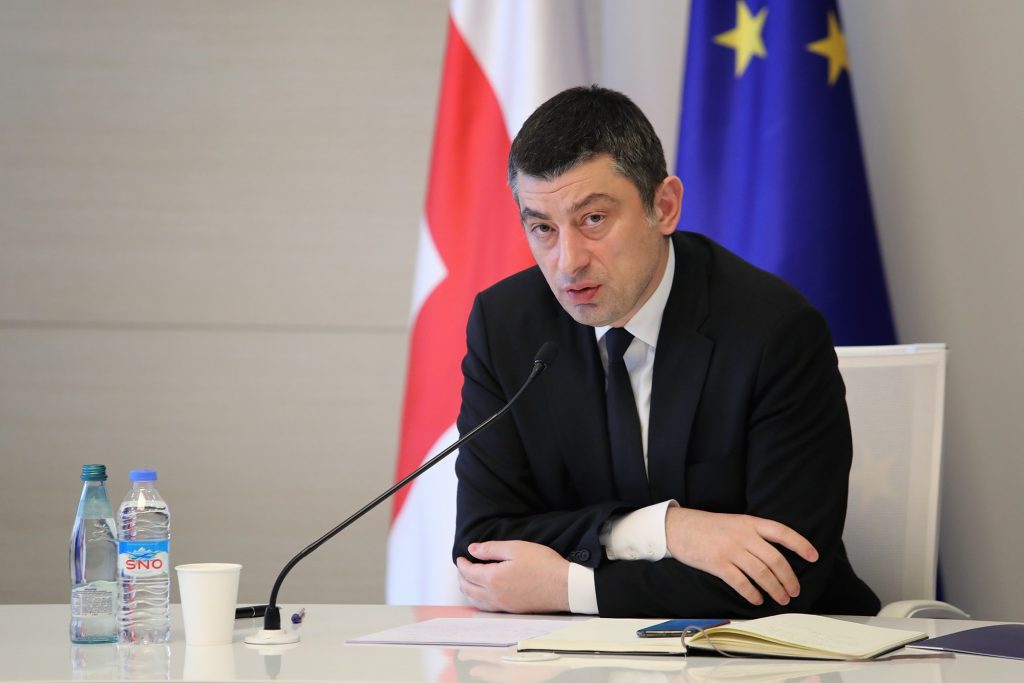On March 30, Georgian Prime Minister Giorgi Gakharia announced more stringent lockdown measures to contain the spread of the novel coronavirus as the country had already registered cases of internal COVID-19 transmission. The Prime Minister said the government was effectively enacting ‘nationwide quarantine’ starting from Tuesday, March 31. The measures will be in force until the end of the state of emergency, April 21.
The new restrictions include the following:
- Citizens will now be required to observe curfew between 21:00 – 06:00 (effective from March 31);
- Public transportation (both municipal and intercity) will be suspended;
- The number of passengers in a single vehicle (taxis will be limited to three);
- Gathering of more than three people will be banned except for “essential” stores (grocery stores and pharmacies), where citizens will haveto observe a 2-meter distance;
- People aged 70 and more will be banned from leaving their houses except for going to their closest grocery stores/pharmacies/hospitals;
- Checkpoints for thermal screening of citizens will be set up in Tbilisi, Kutaisi, Batumi, Poti, Rustavi, Zugdidi and Gori;
- Every citizen should be carrying a passport/ID cards at all time.
Explaining the reasons behind the decision, Gakharia cited “alarming” increase of new COVID-19 cases, adding that the healthcare authorities failed to identify sources of infection of three patients. Number of total confirmed cases has hit 100 today, of which 18 patients have fully recovered.
“In this global battle we can win not only owing to round-the-clock heroism of medical professionals… or efforts of the state and police, but with a nationwide consensus around tackling the common challenge,” PM Gakharia stated.
Gakharia expressed regret that some Georgian citizens had not yet fully grasped the severity of the situation and the risks they faced while strolling freely in the streets.
“The government has set up an operations emergency staff, an executive arm of the Inter-Agency Coordination Council, which will work round-the-clock to coordinate enforcement of these measures. Branches of the staff will be established in every region,” noted the Prime Minister.
In order to avoid communication problems with the state authorities, the government has launched a free-of-charge hotline (144) for citizens.
“There is a limit to enforcing these restrictions, which is the life and safety of our citizens. We are bound to act efficiently,” added Gakharia. The government will make all efforts so that the media carries on operating unhindered, he noted.
The Prime Minister underlined that the lockdown measures applied to “everybody.” “Public or private entities, in accordance with their strategic importance, may be given a permission to function round-the-clock, provided that they observe recommendations issued by the National Center for Disease Control and Public Health,” clarified Gakharia. According to him, only pharmacies will be allowed to remain open from 21:00 to 06:00.
Giorgi Gakharia touched upon the issue with the Georgian Orthodox Church, noting that after due communication, most of the churches have taken special measures. “Many parishes have managed to equip church houses with loudspeakers, so that the congregants could stay outside during the services,” he said.
“Our government is accountable for the life and health of our citizens; I am certain that when it comes to protecting life and health of Georgian citizens, the government and the Church will always reach a consensus; That is because I, as an ordinary Christian, common citizen and parishioner, cannot imagine that the Church, as well as the government, could value something more than man’s life,” stated Gakharia.
With reference to importing rapid test kits, Gakharia said that they had “their own place and function,” and that “certain politicians tried to foment false perceptions that medical professionals would take to streets and start mass screening of the population.” “This is a lie,” the Prime Minister stated.
Follow our live blog for the latest updates on COVID-19 in Georgia:
This post is also available in: ქართული (Georgian) Русский (Russian)

